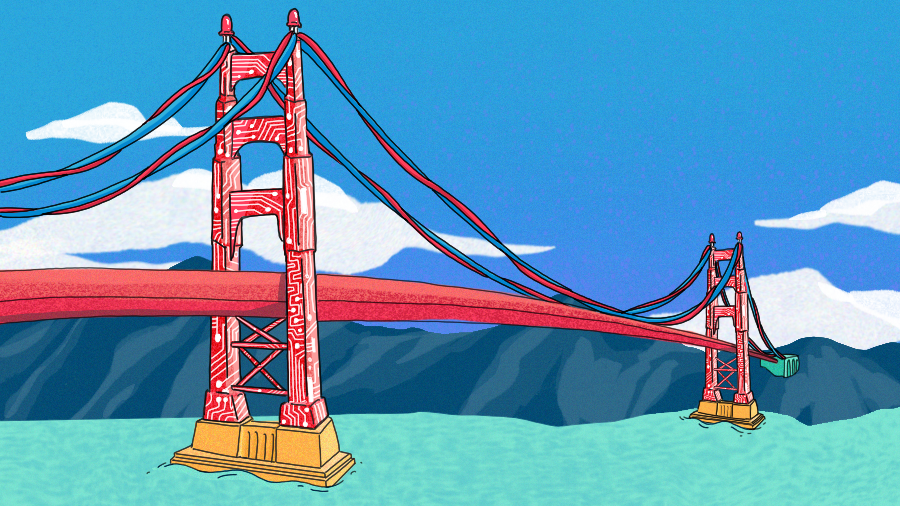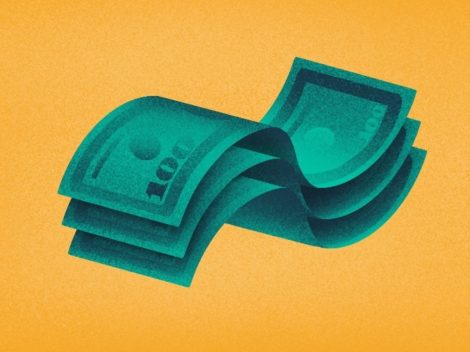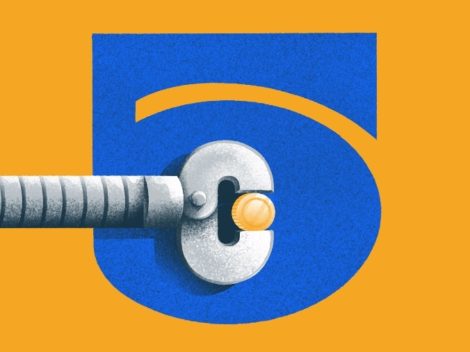A lot of San Franciscans seem to loathe the idea of their city as a global financial powerhouse and center of the tech universe. This is true for people in the tech and finance industries as well as everyone else. We’re attached to the idea of a funky, fog-laced city of steep hills and charming Victorians, with maybe just a few tech and finance jobs to pay the bills.
Subscribe to the Crunchbase Daily
Of course, that’s wishful thinking. Like it or not, San Francisco is the de facto tech startup and unicorn capitol of the Western Hemisphere. And yes, it’s really expensive.
Venture funding data indicates things are likely to stay that way. While there are a few startups that ditch the high rents for hip and comparatively affordable places like Austin, the notion of a mass exodus of tech talent isn’t borne out by the numbers.
The numerical reality is that tech startup financing continues to flood into San Francisco, and the city’s share of total investment is in fact, rising.
I Left My Term Sheet In San Francisco
So far this year, San Francisco-based companies have raised roughly 45 percent of all seed through pre-IPO funding for California companies tracked in the Crunchbase database. That’s up from just under 40 percent in 2018. In the chart below we look at how the percentages have altered over time:

It’s a pattern that’s been accelerating for a while. In the chart below, we look at funding in dollar terms for San Francisco-based companies and those based in any other city or town in California.

The general trendline is pretty clear. San Francisco has become a venture capital vacuum cleaner, sucking up cash even faster than its growing stable of unicorns can spend it.
It’s not just a late-stage thing either. Of course the city has plenty of high-valuation startups raising supergiant funding rounds. Even a list of 2019 rounds of $300 million and up got rather long, topped by gargantuan rounds for logistics platform Flexport and delivery unicorn DoorDash.
But early stage and seed are active as well. For 2019, San Francisco’s stage-by-stage breakdown is as follows:1
- Late stage: 115 deals, collectively valued at $10.1 billion
- Early stage: 268 deals collectively valued at $5.14 billion
- Seed: 423 deals valued at $403 million
Average round size for San Francisco’s seed deals and early stage deals are also roughly in line with the rest of the state. It’s at the unicorn stage where we see the city’s share of supergiant financings tick up. There are at least 57 private, venture-backed companies with reported valuations of $1 billion or more that are based in San Francisco. And that tally doesn’t include the sizable list of local unicorns – Uber, Lyft, Slack, Pinterest, Cloudflare, etc. – that went public this year.
The chart below looks at round counts for San Francisco as a percentage of statewide totals.

And here, we look at how total round counts compare:

Is San Francisco’s Dominance A Good Or Bad Thing?
So, is it a good thing that a city of 47 square miles surrounded on three sides by water continues to slurp up so much of California’s venture capital commitment?
We reached out to Jeff Bellisario, interim executive director for the Bay Area Council Economic Institute, which studies economic issues affecting the region’s livability and business competitiveness. His view is it’s not the rise of startups and unicorns that’s the problem — it’s the region’s failure to keep pace with this growth through investments in housing, transportation, and other infrastructure.
“We see the tech industry as our advantage. It is one of the reasons why our growth has been stronger than almost everywhere else in GDP and employment,” he said. Trouble is, municipalities and developers move slower than the scale-fast-and-break-things crowd, and the region has underinvested in infrastructure for decades.
It’s a sunnier view than some others take. A popular Washington Post feature story titled How San Francisco broke America’s heart declares: “You no longer leave your heart in San Francisco. The city breaks it.” Its litany of locals’ woes includes pricey real estate, income inequality, $20 salads, the homeless, adult children unable to move out, non-tech workers unable to move in, and the relentless onslaught of “hyper-gentrification.”
Wherever you stand on the pros and cons of the techification of San Francisco, data indicates it’s not stopping. The current wave of startup investment, scaling and exiting continues to build. If dollars do leave the city, Bellisario predicts it’s likely they won’t go far. He sees potential for other regional cities, Oakland in particular, to absorb some of the overflow of startup-saturated San Francisco.
We’ll have more on that trend next week. But first, it’s time for a $20 salad break.
Illustration: Dom Guzman.
The rest of the funding went to corporate-backed rounds and rounds of undisclosed stage.↩

Stay up to date with recent funding rounds, acquisitions, and more with the Crunchbase Daily.






![Illustration of a guy watering plants with a blocked hose - Global [Dom Guzman]](https://news.crunchbase.com/wp-content/uploads/quarterly-global-3-300x168.jpg)
67.1K Followers